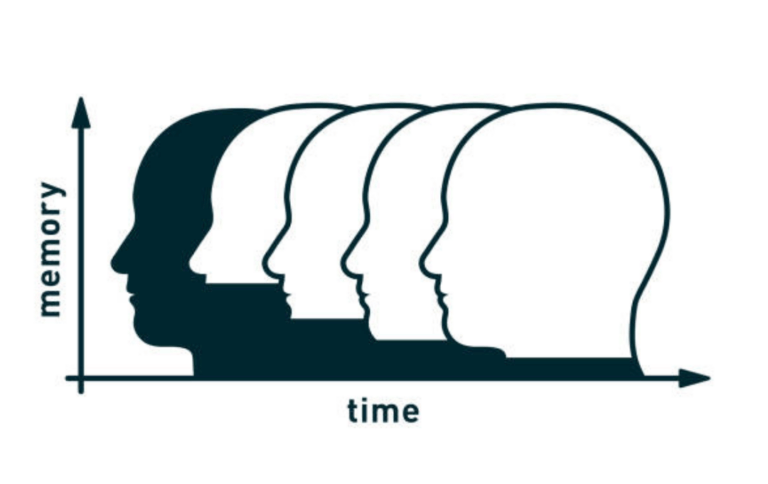The Key Differences Between Pedagogy vs Andragogy

Pedagogy vs Andragogy – They are two fundamental concepts in the field of education that play a crucial role in shaping teaching and learning approaches. To get an idea about the distinctions between pedagogy and andragogy is essential for educators to tailor their instructional methods effectively to different learner groups.
This article delves into the nuances of pedagogy and andragogy, highlighting their key differences and implications for teaching and learning practices.
Read: How To Apply Andragogy in Developing New Courses
Pedagogy: A Traditional Approach to Teaching and Learning
Pedagogy, derived from the Greek words “paid” (child) and “agogos” (leading), primarily focuses on the teaching of children and young learners. In a pedagogical framework, the teacher assumes a central role in directing the learning process, imparting knowledge, and structuring the curriculum. The pedagogical approach is characterized by a teacher-centered model, where the educator is the primary source of information and authority in the classroom.
Pedagogy emphasizes the importance of structured lesson plans, clear learning objectives, and a hierarchical relationship between the teacher and students. The pedagogical model often involves didactic teaching methods, such as lectures, worksheets, and assessments, aimed at guiding students through a predetermined curriculum. The word “pedagogy” underscores the traditional nature of this approach to education, which is rooted in the principles of instruction and guidance for young learners.
Andragogy: A Self-Directed Approach to Adult Learning
In contrast to pedagogy, andragogy focuses on the principles of teaching adult learners. Coined by Malcolm Knowles, andragogy emphasizes self-directed learning, where adults take an active role in shaping their educational experiences.
The andragogical model recognizes that adult learners bring a wealth of life experiences, motivations, and goals to the learning process, which necessitates a more autonomous and participatory approach to education.
Andragogy highlights the importance of engaging adult learners as partners in the learning journey, fostering a collaborative and interactive learning environment.
Unlike the teacher-centered pedagogical approach, andragogy promotes a learner-centered model, where adults are encouraged to set their learning objectives, explore topics of interest, and apply their knowledge in real-world contexts. The word “andragogy” encapsulates the principles of self-directed learning and empowerment that underpin this approach to adult education.
What are the Benefits of using Pedagogy in Adult Learning
While andragogy is often emphasized for adult learning, pedagogy can also offer benefits when applied appropriately. Some key benefits of using pedagogy in adult learning include:
1. Providing Structure and Guidance: Some adult learners, especially those new to a subject or skill, may benefit from the structured, teacher-centered approach of pedagogy. This can help them gain a solid foundation before transitioning to more self-directed learning.
2. Delivering Essential Knowledge: Pedagogy focuses on imparting core knowledge and skills. For adult learners who need to acquire specific information or competencies, a pedagogical approach can ensure they receive the necessary content.
3. Accommodating Different Learning Styles: While andragogy emphasizes self-directed learning, pedagogy recognizes that not all adults are comfortable with this approach. Providing a mix of pedagogical and andragogical methods caters to the diverse learning preferences of adult learners.
4. Reinforcing Learning: Pedagogy often involves repetition, practice, and assessment to solidify learning. For adult learners who need to master complex topics or skills, these pedagogical techniques can help cement their understanding and proficiency.
5. Maintaining Flexibility: Pedagogy does not necessarily preclude adult learners from having some autonomy in their learning. Educators can blend pedagogical and andragogical elements to create a flexible learning environment that meets the needs of adult learners.
What are the Benefits of using Andragogy in Adult Learning
Using andragogy in adult learning offers several benefits, enhancing the educational experience for adult learners. These benefits include:
1. Promotes Flexibility and Independence: Andragogy allows adult learners to take ownership of their learning, catering to their specific needs and goals. It promotes self-directed learning, enabling learners to choose when and how they want to learn, aligning with their busy schedules.
2. Readily Applicable Lessons: Andragogy considers the experiences and motivations of adult learners, making lessons more relevant and applicable to their daily challenges at work. By connecting training programs with job roles, adult learners can see the direct impact of their learning on their professional development.
3. Enhances Engagement and Relevance: By providing self-directed learning options and diverse learning modalities, such as articles, videos, and podcasts, andragogy increases learner engagement and relevance. It allows learners to connect with the material in ways that suit their learning styles and preferences.
4. Encourages Problem-Centered Learning: Andragogy focuses on problem-centered approaches, which resonate with adult learners who are more interested in immediate, practical applications of knowledge. This approach fosters critical thinking and problem-solving skills among adult learners.
5. Facilitates Personalized Skill Development: Andragogy supports personalized learning that enhances the skills of adult learners. Unlike children who focus on gaining knowledge, adult learners aim to upgrade their existing skills and knowledge, making andragogy an advanced learning process tailored to individual growth.
Contrasting Pedagogy vs Andragogy: Key Differences
1. Learner Characteristics:
- Pedagogy: Emphasizes the dependency of young learners on teachers for guidance and instruction.
- Andragogy: Recognizes the autonomy and self-directed nature of adult learners in shaping their learning experiences.
2. Learning Environment:
- Pedagogy: Typically structured and teacher-centered, with a focus on imparting knowledge and skills.
- Andragogy: Interactive and learner-centered, encouraging collaboration, critical thinking, and application of knowledge.
3. Motivation:
- Pedagogy: Often relies on external motivators such as grades and rewards to encourage learning.
- Andragogy: Values intrinsic motivation and personal goals as driving forces for adult learners.
4. Role of the Educator:
- Pedagogy: Teacher-centered approach where the educator is the primary source of knowledge and authority.
- Andragogy: Facilitator role for educators, supporting adult learners in their self-directed learning journey.
Implications for Teaching and Learning Practices
The distinctions between pedagogy and andragogy is essential for educators to design effective instructional strategies that cater to the diverse needs of learners. By recognizing the unique characteristics of pedagogy and andragogy, educators can adapt their teaching methods to create engaging and meaningful learning experiences for both children and adult learners.
Incorporating elements of both pedagogy and andragogy in educational practices can lead to a more holistic and inclusive approach to teaching and learning. By blending structured guidance with opportunities for self-directed exploration, educators can create dynamic learning environments that foster curiosity, critical thinking, and lifelong learning skills in all learners.
Pedagogy and andragogy represent distinct approaches to education that cater to the unique characteristics and needs of different learner groups. By embracing the principles of both pedagogy and andragogy, educators can create enriching educational experiences that empower learners of all ages to reach their full potential.






